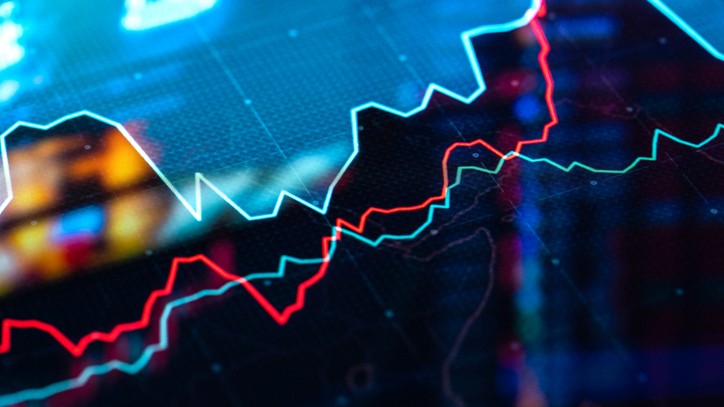Where to Invest Now: Texas
Folks should consider Texas when thinking about where to invest now, given its low cost of living, tech-savvy workforce and accommodating regulatory climate.


Profit and prosper with the best of Kiplinger's advice on investing, taxes, retirement, personal finance and much more. Delivered daily. Enter your email in the box and click Sign Me Up.
You are now subscribed
Your newsletter sign-up was successful
Want to add more newsletters?

Delivered daily
Kiplinger Today
Profit and prosper with the best of Kiplinger's advice on investing, taxes, retirement, personal finance and much more delivered daily. Smart money moves start here.

Sent five days a week
Kiplinger A Step Ahead
Get practical help to make better financial decisions in your everyday life, from spending to savings on top deals.

Delivered daily
Kiplinger Closing Bell
Get today's biggest financial and investing headlines delivered to your inbox every day the U.S. stock market is open.

Sent twice a week
Kiplinger Adviser Intel
Financial pros across the country share best practices and fresh tactics to preserve and grow your wealth.

Delivered weekly
Kiplinger Tax Tips
Trim your federal and state tax bills with practical tax-planning and tax-cutting strategies.

Sent twice a week
Kiplinger Retirement Tips
Your twice-a-week guide to planning and enjoying a financially secure and richly rewarding retirement

Sent bimonthly.
Kiplinger Adviser Angle
Insights for advisers, wealth managers and other financial professionals.

Sent twice a week
Kiplinger Investing Weekly
Your twice-a-week roundup of promising stocks, funds, companies and industries you should consider, ones you should avoid, and why.

Sent weekly for six weeks
Kiplinger Invest for Retirement
Your step-by-step six-part series on how to invest for retirement, from devising a successful strategy to exactly which investments to choose.
There's a good case that the state of Texas has the best economy in the world. Its gross domestic product (GDP), which is over $2 trillion, is bigger than that of all but seven countries, and it's growing like crazy. Since 2000, the population of Texas has risen 21.3%, more than any other state but tiny Idaho, and there are plenty of great places to live in Texas.
Texas is the number-one exporting state, and it's tops for foreign direct investment as well. It's home to more Fortune 500 companies than California or New York, and for 19 years in a row a survey of CEOs by Chief Executive magazine has ranked Texas first in the nation based on assessments of business climate, workforce and quality of life.
Indeed, Texas is a formula for success. It has five cities among the 12 largest in the U.S. (no other state has more than two), and I lived happily in one of them – Dallas – for four years. The success formula was obvious: a relatively low cost of living, a diligent and tech-savvy workforce, and an accommodating regulatory climate with no individual or corporate income tax. No wonder, as the Census Bureau recently reported, 668,000 new residents relocated to Texas from out of state in 2022, with 102,000 of them coming from California.
From just $107.88 $24.99 for Kiplinger Personal Finance
Become a smarter, better informed investor. Subscribe from just $107.88 $24.99, plus get up to 4 Special Issues

Sign up for Kiplinger’s Free Newsletters
Profit and prosper with the best of expert advice on investing, taxes, retirement, personal finance and more - straight to your e-mail.
Profit and prosper with the best of expert advice - straight to your e-mail.
Of course, not everyone likes the Texas way of life. You may not enjoy the climate or the devil-may-care zoning. The level of social services has been widely criticized, and U.S. News & World Report ranks the state's education system for preschool through 12th grade 37th in the nation.
But you don't have to live there to profit from Texas. On July 13, a Dallas bank launched the first exchange-traded fund that tracks an index of the state's listed businesses. The Texas Capital Texas Equity Index (TXS, $25) holds shares of 216 companies, weighted by a formula based on sector, contribution to the state's GDP and market value. The fund, with an expense ratio of 0.49%, doesn't have much of a track record yet. Still, during a period that was volatile for stocks, it is roughly flat from its inception through November 30, compared with a small gain of less than 2% for the S&P 500 over the period.
The portfolio is overweight in energy, at 20.4%, compared with just 4.6% for the average fund in the large-cap blend category, according to the research firm Morningstar. Otherwise, the fund is strikingly diversified, as reflected in its top 10 holdings, many of which I recommend. Here they are in order of their recent weight in the fund, ranging from 3% to 4.8% of total assets (All companies are in bold; stocks I like are in italics; prices are as of November 30).
One Texas fund's top 10 stock picks
Tesla (TSLA, $240). The electric vehicle company is headquartered in Austin, site of one of Tesla's five global "gigafactories." The Austin plant has 10 million square feet of manufacturing space for 20,000 employees. I was a Tesla fan (and shareholder) in the past, but I grew worried – in fact, disgusted – with CEO Elon Musk's erratic behavior since taking over Twitter (now X), so I took some profits and bid goodbye.
McKesson (MCK, $471). Based in Irving, between Dallas and Fort Worth, the giant pharmaceutical distributor has had impressively rising earnings for years. Shares of the healthcare stock jumped more than 40% in the eight months ending in November, but the price-to-earnings (P/E) ratio, based on analysts' earnings forecasts for the next 12 months, is just 16.
CrowdStrike Holdings (CRWD, $237). A dominant player in cloud-based cybersecurity systems, CrowdStrike moved its headquarters from Sunnyvale, California, to Austin in 2021. In the most recent quarter, revenues were up 35% compared with the previous year. The tech stock has doubled in a year, but it's still below its high.
Crown Castle (CCI, $117). Based in Houston, this real estate investment trust (REIT) owns and leases 30,000 cell towers and 85,000 miles of communications fiber across the country. The stock yields a hefty 5.3%.
Waste Management (WM, $171). Also Houston-based, the company is by far the largest in its sector, with interests ranging from collection services to solid-waste landfills. Profits have increased at a surprisingly good clip, but the industry is not my favorite.
Charles Schwab (SCHW, $61). By moving its headquarters to a 70-acre campus in Westlake, near Dallas, after nearly 50 years in San Francisco, Schwab saved an estimated 10% to 15% in costs. Shares of the financial firm were hammered as interest rates rose, and its relatively depressed state (a P/E of 18) offers a buying opportunity.
Digital Realty Trust (DLR, $139). A REIT based in Austin that specializes in leasing data centers, Digital Realty is one of the largest players in a fast-growing sector. Like Schwab, its stock has been hit by rising interest rates – a condition that may soon change. The stock yields 3.5%.
Wingstop (WING, $240). A booming fast-food chain with more than 2,000 outlets serving Buffalo-style chicken wings, Wingstop was founded in 1994 in Garland, Texas. The stock, I'm afraid, has gotten out of hand, quadrupling in five years and trading at a P/E of 90. Wait for a nice big dip before buying.
Exxon Mobil (XOM, $103). The quintessential Texas company, Exxon has a huge presence in the state, with headquarters in Houston, refineries in Baytown and Beaumont, and major drilling operations in West Texas. The stock's 3.7% dividend yield is tempting, but I'd wait to see if the price of oil falls on weakening demand later this year before buying.
Cheniere Energy (LNG, $182). The company owns two terminals where natural gas is converted to a liquid state to be transported by ship, mainly to markets in Europe – a business that has soared in recent years. Cheniere's liquefied natural gas terminals, in Louisiana and Corpus Christi, are among just nine now operating in the U.S., but more competition is on the way. Still, the energy stock is well priced despite tripling in just three years.
Yes, two of the ETF's top 10 are oil and gas stocks, but Texas is diversifying away from fossil fuels. The state has the largest capacity of wind-powered electricity in the U.S. and ranks second for solar energy. Most of the companies in this space, however, are either based outside Texas or private (like TXU Energy, the largest electricity provider).
In addition to the Texas Capital ETF, there's a Texas-only small-cap mutual fund called, appropriately, the Texas Fund. But it carries an absurdly high expense ratio of 1.68%, requires a $50,000 minimum investment and has had below-average returns. Texas stocks aren't automatic winners.
There's no doubt that a well-run small-cap fund focused on the state is sorely needed. During my time in Texas, I was even more impressed with its start-ups than with its big corporations. Now, however, look to the Texas Capital ETF – or selected components. In the case of Texas, you can let one state make up a sizable chunk (say, 10%) of your portfolio.
James K. Glassman chairs Glassman Advisory, a public-affairs consulting firm. He does not write about his clients. He owns none of the stocks listed here. You can reach him at JKGlassman@gmail.com.
Note: This item first appeared in Kiplinger's Personal Finance Magazine, a monthly, trustworthy source of advice and guidance. Subscribe to help you make more money and keep more of the money you make here.
Related content
Profit and prosper with the best of Kiplinger's advice on investing, taxes, retirement, personal finance and much more. Delivered daily. Enter your email in the box and click Sign Me Up.

-
 Betting on Super Bowl 2026? New IRS Tax Changes Could Cost You
Betting on Super Bowl 2026? New IRS Tax Changes Could Cost YouTaxable Income When Super Bowl LX hype fades, some fans may be surprised to learn that sports betting tax rules have shifted.
-
 How Much It Costs to Host a Super Bowl Party in 2026
How Much It Costs to Host a Super Bowl Party in 2026Hosting a Super Bowl party in 2026 could cost you. Here's a breakdown of food, drink and entertainment costs — plus ways to save.
-
 3 Reasons to Use a 5-Year CD As You Approach Retirement
3 Reasons to Use a 5-Year CD As You Approach RetirementA five-year CD can help you reach other milestones as you approach retirement.
-
 Yes, Artificial Intelligence Stocks Are Booming
Yes, Artificial Intelligence Stocks Are BoomingIt's fair to ask about the latest tech boom, "Is it really different this time?"
-
 Dow Rises 313 Points to Begin a Big Week: Stock Market Today
Dow Rises 313 Points to Begin a Big Week: Stock Market TodayThe S&P 500 is within 50 points of crossing 7,000 for the first time, and Papa Dow is lurking just below its own new all-time high.
-
 A Value Focus Clips Returns for This Mairs & Power Growth Fund
A Value Focus Clips Returns for This Mairs & Power Growth FundRough years for UnitedHealth and Fiserv have weighed on returns for one of our favorite mutual funds.
-
 Small-Cap Stocks Gain Momentum. That's Good News for This iShares ETF
Small-Cap Stocks Gain Momentum. That's Good News for This iShares ETFThe clouds appear to be parting for small-cap stocks, which bodes well for one of our favorite exchange-traded funds.
-
 Nasdaq Leads Ahead of Big Tech Earnings: Stock Market Today
Nasdaq Leads Ahead of Big Tech Earnings: Stock Market TodayPresident Donald Trump is making markets move based on personal and political as well as financial and economic priorities.
-
 11 Stock Picks Beyond the Magnificent 7
11 Stock Picks Beyond the Magnificent 7With my Mag-7-Plus strategy, you can own the mega caps individually or in ETFs and add in some smaller tech stocks to benefit from AI and other innovations.
-
 Should You Be Investing in Emerging Markets?
Should You Be Investing in Emerging Markets?Economic growth, earnings acceleration and bargain prices favor emerging markets stocks right now.
-
 7 Hybrid Adviser Services, Reviewed
7 Hybrid Adviser Services, ReviewedThese hybrid adviser services aim for a sweet spot that combines digital investing with a human touch.